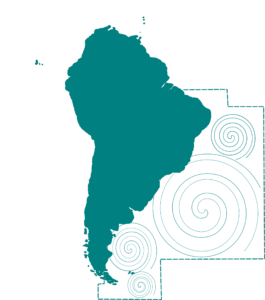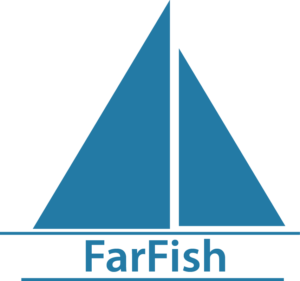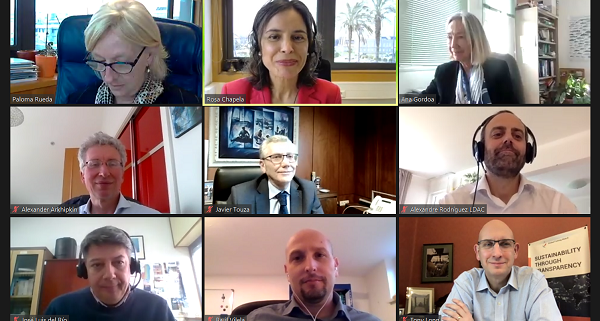Increased interest and fruitful discussions at the International Conference “Sustainable Fisheries in SW Atlantic: a scientific approach”
On 4th of March, 2021, the International Conference titled “Sustainable Fisheries in SW Atlantic: a scientific approach” took place within the framework of the FarFish project. With 141 attendees, the online conference was a success not only because of the interest that it raised, but because of the fruitful discussions that we were able to witness during the different panels.
During the first panel, dedicated to explore scientific collaboration to advance in fisheries assessments, it was agreed that there is a need for international cooperation in scientific research. Data sharing is essential for all fisheries, but particularly on fisheries of straddling stocks that live in different EEZs (e.g. Illex argentinus and Merluccius hubbsi).Observer programmes need to be strengthened too through collaborative research, helping with the promotion of selectivity gear and by-catch measures, and building (uninterrupted) time data series. The research priorities identified by the panelists can be divided into two fields:
- A multilateral action plan to be defined through a stepwise approach for data collection programs on:
- Biology (population structure, distribution, age and growth, feeding and spawning grounds, migration)
- Habitat characteristics (suitability, benthos, population dynamics)
- Fisheries management (fishing effort, flag state, technical measures and international law);
- Climate and environmental conditions (spatial and temporal scales)
- Set an adequate international legal framework for scientific cooperation in the area, focus on:
- Fight overfishing and IUU fishing
- Promote scientific forums to share and exchange information
- Improve MCS and compliance by all fleets for VME protection in ABNJ waters
The second panel focused the discussion on best practices on management and control. Representatives from the IEO, Global Fishing Watch and the industry highlighted the need for further integration of research and fisheries data under a multidisciplinary approach. For example, remote sensing could be used to estimate fleet sizes and catch rates, being complementary to the use of VMS and ERS. At the same time, fisheries uncertainty could be reduced by rising science and strengthening the connectivity between both scientific and local knowledge.
The main take-home message from the Conference is the need of an RFMO to implement the mechanisms that will allow the coordination and connectivity between stakeholders, as well as the sharing and exchange scientific data in order to prepare advice and agree on regulatory measures in Patagonian Shelf.





